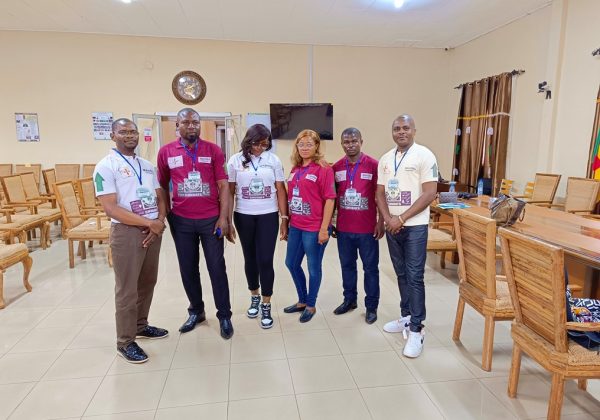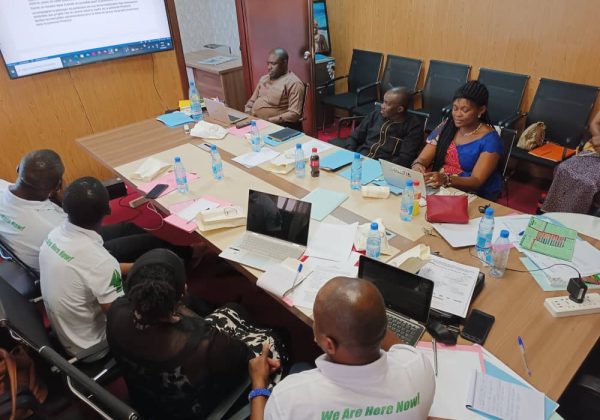With Respect to Those Living With HIV/AIDS – World Aids Day 2011
 (In Commemoration of the World’s AIDS Day 2011, MAHSRA developed and customized the Relative Rights based Articles with global Objectives to Reach, Share, Educate and Remind Persons Living with HIV/AIDS worldwide of their Rights and Societal Obligations towards their well being)
(In Commemoration of the World’s AIDS Day 2011, MAHSRA developed and customized the Relative Rights based Articles with global Objectives to Reach, Share, Educate and Remind Persons Living with HIV/AIDS worldwide of their Rights and Societal Obligations towards their well being)
1. (Full Rights)
The full complement of human rights under international law, those most relevant to HIV/AIDS — including the Right to:
- Life
- Liberty and security of person
- Participate fully in public and cultural life, including freedom to practice spiritual and cultural beliefs
- The highest standards of physical and mental health
- Non-discrimination, equal protection and equality before the law
- Share in scientific advancement and its benefits
- Freedom of opinion and expression
- Freedom of movement
- Privacy and confidentiality
- Freedom of association
- Work
- Marry, form relationships and have a family
- Equal access to education
- Social security, assistance and welfare
- A reasonable standard of living
- Seek asylum
- Be free from torture and cruel, inhuman or degrading treatment or punishment.
2. (Co-ordinated Response)
The Right to a coordinated and effective response from all levels of governments to the HIV/AIDS pandemic.
3. (No Discrimination)
The Right to live free from harmful discrimination or stigma which in any way relates to the positive HIV status, and to be treated with respect and dignity.
4 (Sex)
The Right, as consenting adults, to a full and satisfying sex life.
5 (Participation)
The Right to:
- Participate at every level of consultation, decision making and implementation regarding HIV/AIDS advice, policy, laws, treatments, funding, research, education, resourcing and financing, and all other matters relevant to the HIV/AIDS response;
- Be represented in the governance of all organizations that are involved with HIV/AIDS or which provide any service in that regard; and
- Form autonomous, self-governing organizations of people living with HIV/AIDS and for those organizations to be consulted and listened to in all levels of HIV/AIDS decision making.
6 (Testing)
The Right to confidential and comprehensive pre- and post-test counseling and to give informed consent. The Right to HIV testing and monitoring without coercion. This includes an enabling environment for the upholding of privacy and the protection of confidentiality.
7 (Treatment)
The Right to the highest quality and standards of specialist medical treatments of choice. The Right to refuse treatments if so chosen
8 (Care)
The Right to any quality and specialist medical care, palliative care and support services suitable and acceptable to the individual including:
- The Right to life-saving and life-prolonging health care;
- The Right to have psycho-social needs addressed as well as biomedical needs, and in particular, the Right to quality and specialist psychological and mental health services;
- The Right to make fully informed and voluntary decisions about PLWHAs’ participation in clinical trials, to access quality care regardless of any agreement or refusal to participate in HIV/AIDS research;
- And in each case have these Rights without regard to the ability to pay or the absence or type of health insurance and coverage.
9 (Medications)
The Right to access HIV/AIDS medications and treatments when it is needed regardless of the capacity to pay. This includes the Right to protect through legislation, to access and advocate for new and emerging medications, as clinically necessary and through emergency access measures.
10 (Family and Relationships)
The Right to marry, to form and maintain family and partnership arrangements, and care arrangements as of choice, including:
- The Right of HIV positive women and HIV positive men to have children and to make fully informed decisions in that regard;
- The Right to adopt children, and to maintain custody of their own children; and
- The Right to require that Governments protect and promote these Rights in the legal system and create supportive and enabling environments for women, men, children and the family and the partnership arrangements herein described.
11 (Housing)
The Right to acceptable standards of housing, including the Right for people with life- threatening HIV/AIDS to have priority access to public housing.
12 (Education)
The Right to education, at all levels within the community, unrestricted on the basis of HIV status.
13 (Prisoners)
The Right to community standard health and treatments for those with HIV/AIDS in custodial settings. The Right to health for those in custody. This includes the Right to access treatment prevention technologies, condoms, clean needles and the like free of charge.
14 (Injecting Drug Users)
The same Right to health as any other member of a given society. Access to programs which protect the health of people who inject drugs and reduce HIV transmission (such as needle syringe programs, substitution and rehabilitation therapies) are a human right. Laws must be enacted by Governments to protect that right and in so doing the public health of the community.
15 (Indigenous)
The same Right to health as any non-Indigenous person, and the same Right to the same standards of health as any non-Indigenous person, delivered in a culturally appropriate way, which reflect the differing and particular needs of Indigenous peoples where ever and whenever.
16 (Multicultural)
The Right to receive all information and services, and to attain all of the Rights which are now declared, provided in a culturally acceptable manner and spoken and written in the language of choice, and through an interpreter if necessary.
17 (International)
The Right to require that all governments, organizations, corporations and other bodies around the globe share their knowledge and experience regarding HIV/AIDS issues and promote and protect these Rights at the national and international level. This includes the fulfillment of international commitments through specific HIV/AIDS programs and in the programs of all groups involved in the international HIV/AIDS response.
18 (Freedom of Movement)
The Right of people living with HIV/AIDS to freedom of international movement and migration privileges, as accorded any other individuals. This also includes the Right to seek asylum and not be refused on the basis of their HIV status.
19 (Death)
The Right to die with dignity and in the manner the individual chooses.
20 (Implementation)
The Right to secure, through policy and legislation, protection in both the public and private sectors for those with HIV/AIDS. This should be achieved through enforceable codes of conduct and professional practice.
21 (Accountability and Inforcement)
The Right to require that Governments enact and adopt monitoring and enforcement mechanisms to implement these Rights, with appropriate penalties where that is not done, together with affordable and effective administrative and civil remedies to enable and ensure these Rights are appropriately enforced. The Right to require national Governments to review, enact and reform legislation to protect and promote each of these Rights which are herein stated.


